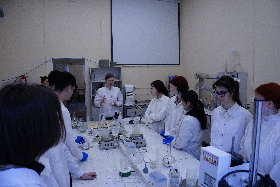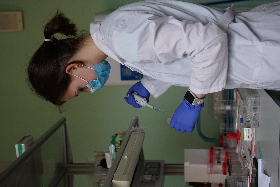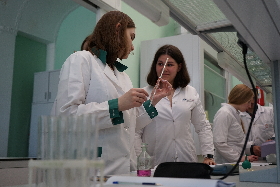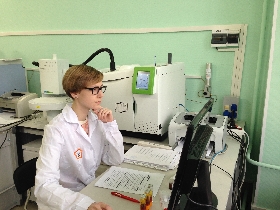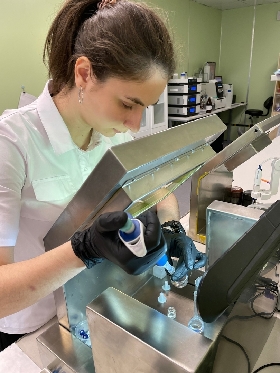Chemistry
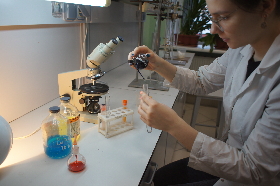
Accreditation. State accreditation. Professional-public accreditation and international accreditation (the National Center for Public Accreditation).
Achievements. The educational program is ranked among the Best Educational Programs of Innovative Russia.
Teaching staff. Training is provided by 20 university subdivisions. Eighty percent of teachers hold academic degrees of Doctors and Candidates of Sciences. The degree-granting departments are the Departments of Organic Chemistry and Analytical Chemistry.
Learning outcomes. Students learn main physicochemical methods and their theoretical foundations; modern methods of synthesis and analysis of organic compounds.
Facilities and resources. The departments have state-of-the-art laboratory analytical and process equipment. There is a GMP training center equipped with state-of-the-art devices. It is built based on the principle of modular systems (“a room in a room”), with a set of engineering systems and industrial testing equipment. It comprises a quality control laboratory, clean manufacturing premises of sections of solids, sterile dosage forms, and semisolids. The university also has a resource sharing center and a pharmaceutical quality control center.
Research. The faculty conducts toxicology screening, research on development and synthesis of new drug products, quality control of raw materials and finished products, optimization of current technologies and development of new technologies, methods and techniques for producing and analyzing drug substances and excipients, quality control of raw materials, semifinished and finished products, and categorization and certification of products.
Competitive advantages. The program is unique as emphasis is placed on practical aspects of the activity of synthetic and analytical chemists, mainly in the context of drug development. On the one hand, this is reflected in the content of chemistry disciplines (both basic and specialized disciplines), with particular focus on the synthesis and analysis methods used for the development of drug substances based on small organic molecules. On the other hand, some auxiliary disciplines immerse students in the key aspects of the drug life cycle, including elements of chemical engineering, pharmaceutical analysis, and computer modeling.
Career prospects and employment. Among the graduates are specialists of pharmaceutical companies and enterprises at different levels, analytical laboratory staff, quality assurance and quality control specialists at pharmaceutical enterprises, and APS development specialists.
